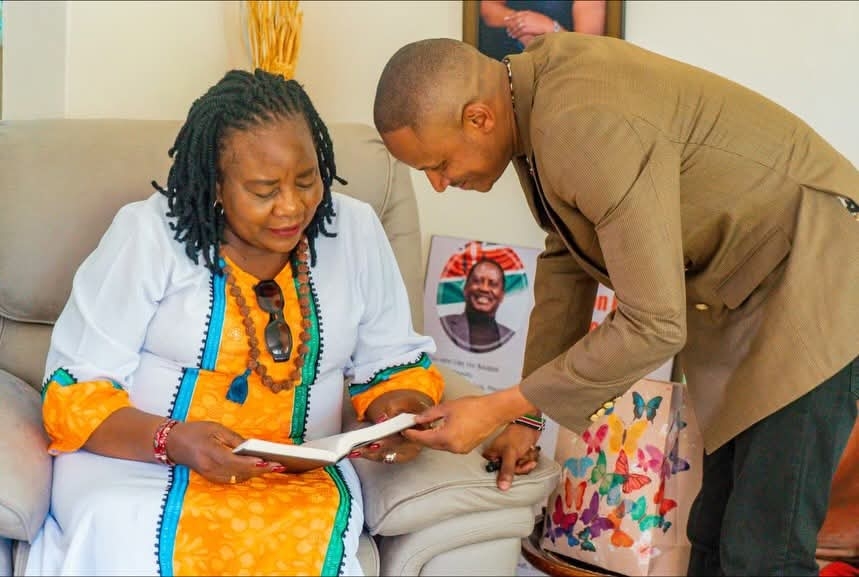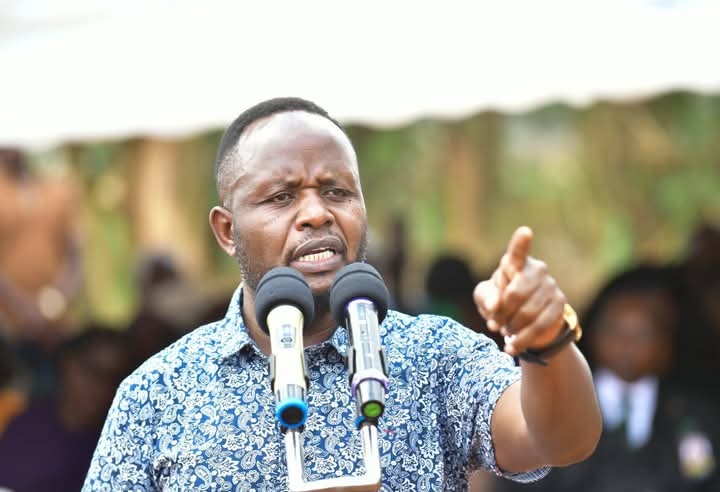Opposition leader Raila Odinga has changed tact in dealing with rebel MPs in ODM.
The MPs are known to constantly ignore party position during voting in Parliament.
In unprecedented move, ODM has said it will initiate a recall against six MPs who voted for the now withdrawn Finance Bill 2024.
The six lawmakers are from the party's strongholds.
The six are, Gideon Ochanda (Bondo), Elisha Odhiambo (Gem), Caroli Omondi (Suba South), Emmanuel Wangwe (Navakholo), Memusi Kanchory (Kajiado Central) and Bernard Shinali (Ikolomani).
They defied party’s express instructions to shoot down the punitive tax proposals despite protest from Kenyans.
“ODM shall initiate and lead a recall processes in the following constituencies in light of the current office holders repeated violation of their sacred oath and the wishes of the electorate,” ODM Secretary General Edwin Sifuna.
The decision was arrived at during the party’s Central Management Committee meeting in Nairobi chaired by Raila.
ODM said it will go after the six out of the 12 MPs who voted for the Bill to serve as an example to the rest.
The party spared Ali Wario (Garsen), Christopher Aseka (Khwisero), Mohammed Abdikadir (Lagdera), Oscar Nabulindo (Matungu), Johnson Naicca (Mumias West) and Adow Mohamed (Wajir South).
The process of recalling an MP is governed by the Constitution and the Elections Act.
The law says to initiate a recall of an MP, a voter from the constituency must file a petition with the electoral commission with signatures from at least 30 per cent of voters from the constituency and 15 per cent from each ward.
The recall is successful if at least 50 per cent of the voters in the constituency participate in the polls.
MPs can be recalled on four grounds: Gross violation of the Constitution or any other law, committing an offence under the Elections Act, misconduct likely to bring disrepute to the office and if the MP is found to have mismanaged public funds.
“A recall of an MP shall only be initiated upon a judgment or finding by the High Court confirming the grounds of violation of provisions of Chapter Six of the Constitution, mismanagement of public resources and or conviction for an offence under the Elections Act,” the law says.
The recall process has five stages.
The process can be initiated by a registered voter in the respective constituency.
The petitioner must collect signatures from at least 30 per cent of registered voters in the constituency.
The second stage is submission of the collected signatures to the IEBC.
The signatures must be accompanied by a list specifying the grounds upon which the petitioner wants the MP sent home, evidence supporting the claims and a statutory declaration satisfying the signatures.
Next, IEBC will verify the signatures and the validity of the petition.
If the commission finds that the petition meets the threshold, it will notify the MP who will then have an opportunity to respond to the allegations.
IEBC will then notify the Speaker of Parliament within 15 days of the verification of the petition and proceed to initiate the recall.
The Commission will then hold fresh elections within 90 days of the verification of the petition.
The MP will lose the seat if a simple majority of the electorate votes in the recall election to remove them from office.
IEBC will then organise a by-election to replace the MP.
It should be noted that an MP can only be recalled two years after elections and 12 months before the next election
The move is a complete departure from the previous years when the orange party took internal disciplinary actions against the members leading to their expulsion.
In 2023, the party dragged to the disciplinary panel and ‘expelled’ some MPs who defied its calls against the Finance Bill.
They were Esther Passaris (Nairobi), Elisha Odhiambo (Gem), Paul Abuor (Rongo), Mark Nyamita (Uriri) and Felix Oduor (Langata).
They however successfully challenged the verdict in court.
“Some of these MPs are serving because of the courts, we had long expelled them,” Sifuna said last week.

















